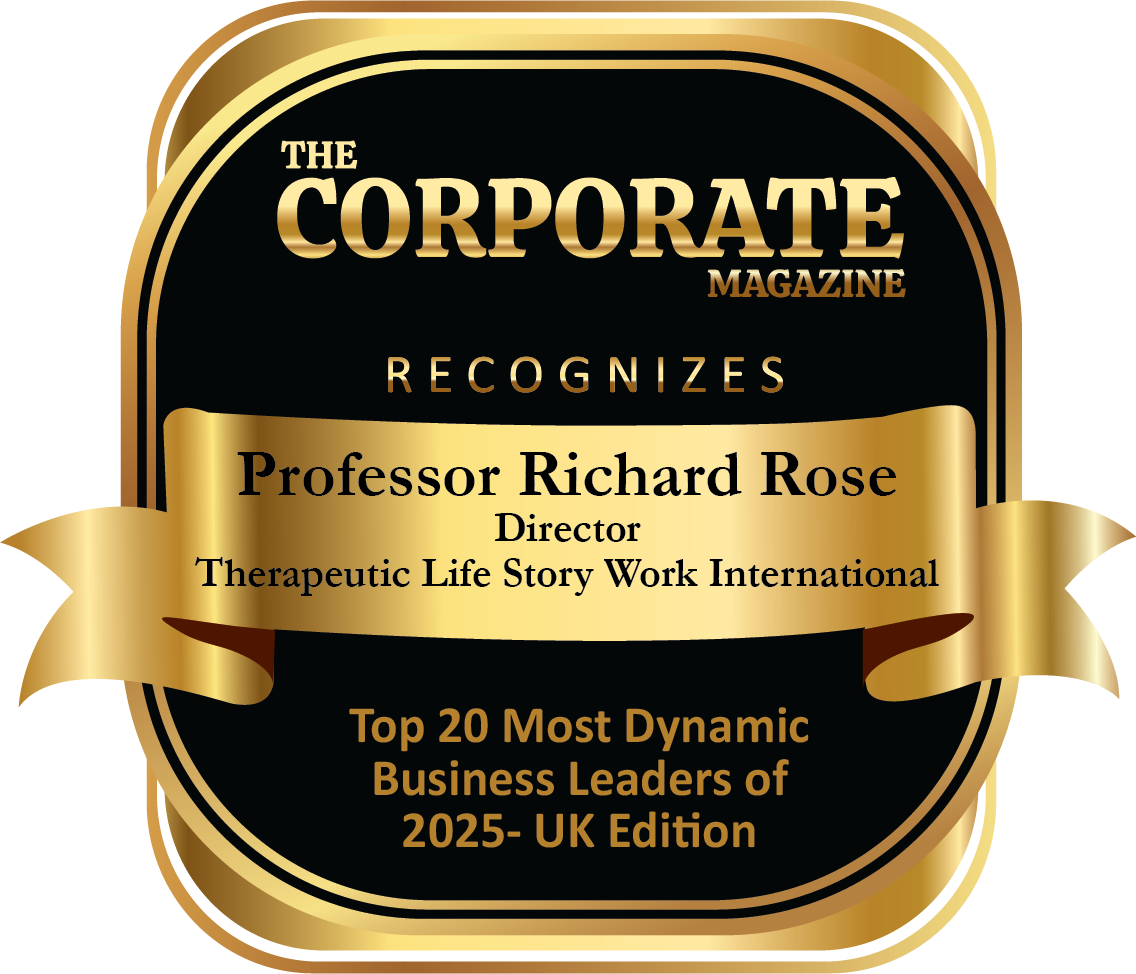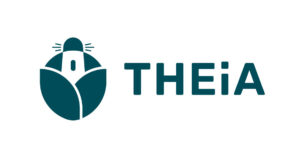But the journey from a volunteer storyteller to an international thought leader in trauma recovery was neither linear nor easy.
The Fragments That Form a Whole
In 1997, while working with SACCS (Sexual Abuse Child Consultancy Service), Richardwas tasked with a daunting mission: to gather the shattered fragments of children’s lives and reassemble them into coherent, compassionate narratives. These were children so dissociated from their experiences that even the concept of “home” felt overwhelming. The work was met with skepticism. Senior figures questioned its value. Yet something remarkable happened—staff retention improved, sick days dropped, and carers found renewed purpose. The intervention wasn’t just helping children; it was healing the ecosystem around them.
By 2004, Richardhad co-authored a book with Terry Philpot, and invitations to speak began pouring in. A pivotal moment came in 2007, when therapist Graham Music told him, “Only you can do this because of the way you are.” That comment struck a nerve. Richardrealized he could either remain a solitary practitioner making small ripples—or train others to create waves. With the support of Dr. Margot Sunderland and the Institute for Arts and Therapy in Education (IATE), he launched a diploma program in Therapeutic Life Story Work, democratizing the method and expanding its reach.
Today, the Rose Model is practiced in countries as diverse as Japan, Singapore, New Zealand, Ireland, and the United States. It is the only TLSW model backed by rigorous research, and its applications now extend beyond children to adult survivors, schools, and care-experienced individuals. The model’s synchronicity with research findings continues to affirm its transformative power.
The Heart Beneath the Clinical Frame
Richard’scommitment to storytelling as a therapeutic tool is not just professional—it’s personal. “You must understand your own story,” he says, “before you can help others with theirs.” His own journey has been shaped by love, loss, and a refusal to compartmentalize emotion from clinical practice. In 1991, he was told that as a social worker, he could no longer be therapeutic—he was merely a purchaser of services. The absurdity of that notion still rankles. “We are emotional beings,” he insists. “Clinical intervention must be accompanied by emotional authority.”
For Richard, storytelling is a systemic approach rooted in authenticity, emotional engagement, and role modeling. He doesn’t just hold the pain of his clients—he opens his heart to it. Donald Winnicott once said clinicians must “hold the pain of their clients.” Richardgoes further: “We must open our hearts to the child’s pain, hold their story respectfully, and model recovery.”
This philosophy is not abstract. It’s lived. Since 1984, Richardhas worked directly with children, carrying their trauma without being consumed by it. His practice is a delicate balance of emotional depth and theoretical rigor, a dance between heart and mind that few can master.
Moments That Shape a Life
Over four decades, Richardhas been shaped by those he’s journeyed with. One moment stands out—a 13-year-old child who taught him the concept of preoccupation. When pain has no witness, it festers. It builds until the present becomes inaccessible. This child, wise beyond her years, told him, “My story, the good and the bad, can be written on the paper and I can think about me and those around me, rather than only think about the past and miss the present and future—I don’t have to carry my hurts around anymore.”
That insight led Richardto use wallpaper as a metaphorical canvas, capturing trauma so it could be externalized and processed. It was a turning point, reinforcing the power of narrative to liberate, to heal, and to restore agency.
A Legacy of Care and Philanthropy
With TLSWi now offering 3,200 funded training places annually through THEiA (Trauma Health Education International Academy), Richard’s vision has scaled into a philanthropic force. The Care Excellence Programme (CEP), launched in November 2024, offers five days of trauma-informed training to carers across the UK and Ireland—kinship carers, foster carers, adoptive parents, and residential care workers. The feedback has been overwhelming: “If only I knew this before, my care of the child would not have broken down.” Another attendee said, “Everyone caring for a child in out-of-home care should do this course—it should be taught in schools.”
Despite initial challenges in recruitment, the program now trains up to 160 carers at a time, nine times a year, all online. Nearly 1,000 carers have already completed the training, and expansion to Australia and the US is underway. The program is entirely funded by TLSWi, a testament to Richard’s belief that financial success should serve a greater good.
Leadership Across Borders
As TLSWi evolved into a global professional community, Richardfaced a new challenge: how to preserve the integrity of the model while scaling internationally. With the UK government no longer supporting standalone professional bodies in social care, Richardchose to build one from scratch—an international body with regional chapters. Today, TLSW national bodies exist in Australia, the USA, the UK (including Ireland, Scotland, and Wales), Japan, Portugal, and are emerging in Singapore and Czechia.
The Rose Model is trademarked globally—not for profit, but for protection. Anyone wishing to train, present, or provide the model must seek his consent. “I don’t charge,” Richardsays, “but I do insist the model is clearly identified and subject to rules that ensure its fidelity.” It’s a leadership philosophy rooted in stewardship, not ownership.
Measuring What Matters
For Richard, success is not measured in training numbers alone. It’s found in the lives transformed. He recalls a recent email from a foster parent who had cared for two deeply traumatized boys. Eight years after their TLSW sessions, one was thriving at university, the other preparing for A-levels. “They thought they’d been kidnapped,” Richardremembers. “Now they’re flourishing.”
He’s seen the model save millions in public spending. One authority trained 40+ staff and saved over £11 million in a single year. Another trained just one social worker, who helped five children avoid costly residential placements—saving £1.8 million over three years. But for Richard, the true measure is breaking the cycle: “The children I worked with became the parents of the children I work with. I wanted to break that cycle—and we have.”
New Frontiers of Healing
With the launch of THEiA and the publication of his latest book, Communication Tools for Working with Traumatised Children and Teens, Richardis charting new territory. The book offers practical tools for carers to hear, hold, and honor the stories of hurt children. THEiA training will lean heavily on these tools, empowering practitioners with confidence and compassion.
Professor Richard Rose has underscored the importance of expanding trauma-informed caregiving practices globally, with a particular emphasis on the United States. While TLSWi continues to fully fund the Care Excellence Programme (CEP)—a five-day online training designed for carers across kinship, foster, adoption, and residential settings—Rose acknowledges that scaling this initiative in the U.S. may require a different approach. Unlike in the UK and Australia, where TLSWi has committed long-term funding, he notes that in the U.S., support from successful businesses may be essential to embed the practice more broadly and sustainably.
This insight reflects a strategic pivot in Rose’s philanthropic vision: while he remains committed to funding CEP for the next decade, including a $310,000 allocation for the U.S. rollout, he recognizes that cultural and structural differences may necessitate collaborative investment. His goal is not only to make trauma-informed training universally accessible, but also to ensure it is locally supported and contextually relevant. As CEP prepares to launch in the U.S. early next year, Rose invites mission-aligned organizations to help champion the initiative—believing that shared responsibility is key to transforming caregiving outcomes for children in placement. In his words, “spreading the practice” may depend on collective action as much as individual vision.
The Story Continues
ProfessorRichard Rose’s life is a mosaic of stories—his own, and those entrusted to him by children who dared to speak. He has built a model, a movement, and a legacy rooted in the radical idea that healing begins with being heard. In a world often too busy to listen, Richardhas made it his life’s work to ensure that no child’s story is left untold.
And whether the cow ever reached the island? Perhaps it doesn’t matter. What matters is that someone believed it could.





















